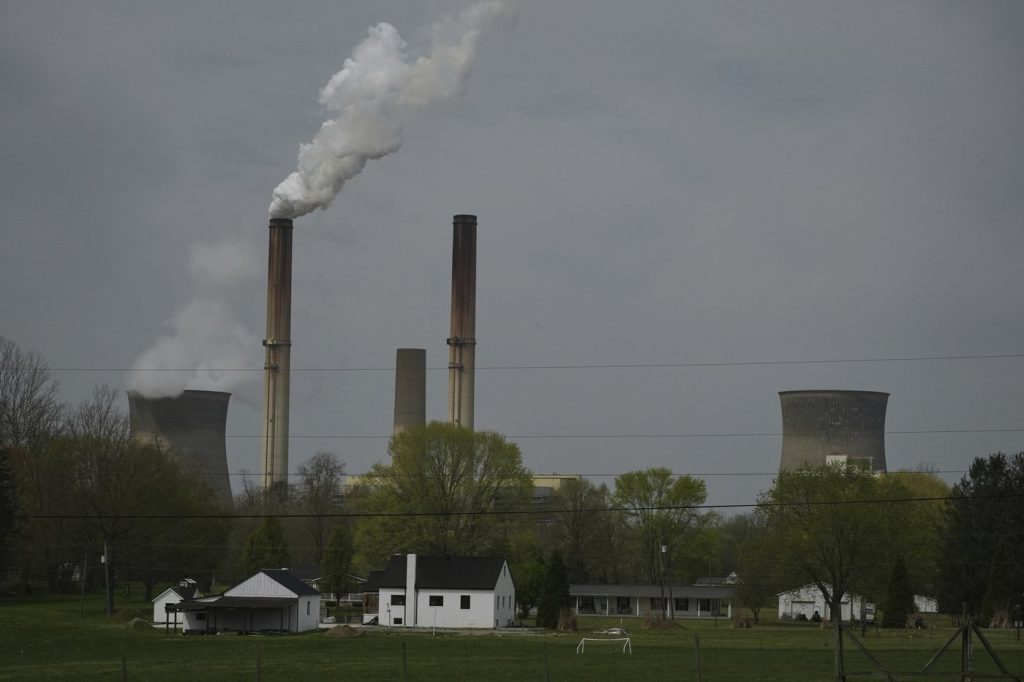The National Academy of Sciences (NAS) stated that the evidence indicating that climate change adversely affects public health is "beyond scientific dispute." This declaration comes in response to the Trump administration's proposal to revoke a critical 2009 government finding that climate change poses a threat to human health and welfare.
Established over a century ago as an independent nonprofit, the NAS emphasized that human activities are releasing greenhouse gases, contributing to global warming, increasing extreme temperatures, and altering ocean conditions. These changes severely jeopardize the well-being of the American public, and the body acknowledged that the evidence supporting these claims has only intensified since the original finding in 2009.
In July, the Trump administration suggested revoking the "endangerment" finding, which is foundational for numerous environmental regulations in the U.S. Efforts to overturn this finding could lead to the dismantling of regulations that limit pollution from vehicles, power plants, and various other sources.
The NAS asserted that the Environmental Protection Agency's (EPA) 2009 finding, which stated that emissions of greenhouse gases resulting from human activities threaten human health, has proven accurate over time, now supported by even stronger evidence. The scientific uncertainties present in 2009 have been resolved, with new risks also identified.
During Trump's presidency, the Department of Energy (DOE) questioned the reliability of climate models used to predict warming trends, suggesting that these models have been overly ambitious. They argued that long-term disaster trends show minimal changes and downplayed the economic impacts of climate change. Additionally, the DOE noted potential benefits to increased carbon levels, including enhanced plant growth.
The EPA responded by stating that the endangerment finding has been employed by the Obama and Biden administrations to justify regulations estimated to cost trillions of dollars. The agency claimed that many dire predictions and assumptions made by the EPA have not materialized as expected.
The scientific community has openly criticized the Trump administration's stance. In a survey conducted by the Associated Press, a significant majority of experts expressed concern over the scientific claims made to justify revoking the endangerment finding. They characterized the administration's arguments as fraught with errors, bias, and distortion.
Moreover, an array of mainstream scientific organizations has condemned the administration's findings. A cohort of 85 climate experts labeled the administration's work as "full of errors" and unsuitable for informing policy-making. Environmental organizations are already contesting the administration's actions in court.
A spokesperson from the White House contended that the Trump administration is producing "Gold Standard Science" grounded in verifiable data. They maintained that the endangerment finding has been misused to justify costly regulations that threaten economic and national security.
Although the Trump administration admitted that climate change is real, it claimed that the future effects are uncertain and may be less severe than predicted by mainstream scientists. They further asserted that the U.S. reductions in greenhouse gas emissions, primarily stemming from fossil fuel consumption, would result in minimal global impact.
In August, authors of the DOE report stated that any inaccuracies in their findings would be addressed and highlighted that the report was not intended to serve as a comprehensive review of climate science. Instead, they aimed to draw attention to issues that they believe have been underreported or overlooked in media and political discourse.
In its report, the NAS emphasized that Americans are facing real threats from climate change, which include increasing exposure to extreme heat, air pollution, and severe weather occurrences. The NAS concluded by warning that the U.S. is on a trajectory where climate-induced harm will continue to escalate, with today's extremes likely to become the new norm for tomorrow.











